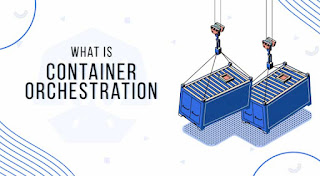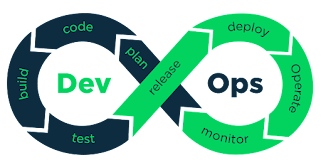What Is The Goal Of A DevOps Methodology?
DevOps is a system of tools, practices and cultural philosophies that automate and incorporate software development and IT teams. It highlights team empowerment, cross-team communication and collaboration, and technology automation.
The fast-paced development of the IT industry and constant technological improvements make it necessary to set DevOps goals and get DevOps certification that are practical and tough for companies to compete and prosper in the market.
DevOps Methodology
DevOps methodology is a development method where Development and IT Operations unite throughout the lifecycle to boost the faster deployment of dedicated software products.
- A sound methodology moves code smoothly through each lifecycle stage without data getting trapped in silos. It should break down what’s required of the people involved in each step and what is needed to pass to the next stage.
- Setting up a suitable DevOps methodology is a real investment.
The Basics Of The DevOps Methodology
A DevOps team includes developers and IT operations working collaboratively throughout the product lifecycle to improve the quality and speed of software deployment. It’s a unique way of working, a cultural shift, that has substantial implications for teams and the organizations they work for.
Let’s dive in to learn the stages of the lifecycle and how the DevOps methodology supports them:
- Development — DevOps integrates feedback from operations, creating more supportable and robust code.
- Integration — DevOps removes stumbling blocks from integration, letting you integrate continuously with minimum effort.
- Testing — Your methodology enables you to automatically test throughout the lifecycle, maintaining your project moving without manual intervention.
- Monitoring — DevOps methodology utilizes monitoring tools to monitor data to inform development throughout the entire lifecycle.
- Feedback — The periodic deployments of your DevOps methodology enable endless opportunities for feedback to enhance your project.
- Deployment — DevOps uses tools like container orchestration to make frequent, small deployments with short manual intervention.
- Operations — Once code is deployed, DevOps sustains the code through inevitable incidents. It ensures you learn everything you can when things go wrong.
The Goals OfDevOps Methodology
A DevOps methodology is a compilation of practices and approaches to achieve the benefits of DevOps. Teams that embrace DevOps culture, tools and techniques become high-performing, building better products faster for more significant customer satisfaction. This improved collaboration and productivity are also essential to achieving business goals.
- Ensures effective collaboration between teams
Helpful collaboration in any process depends on shared ownership. All those involved should consider that everyone is equally accountable for the entire development process. Whether testing, development or deployment, each team member should be involved equally. They should learn that they have an equivalent stake in the outcome. This accelerates the whole development process since cooperation between all the teams involved is facilitated.
- Builds on-demand release capabilities
Companies must concentrate on keeping their software in a releasable state. Continuous delivery will permit the software to count new features and go live at any step. DevOps aims to automate the release management process because it has an overabundance of advantages. Automated release management is fast, predictable and very constant. Moreover, companies can unleash new versions as per their needs through automation. Automated release management also has complete and comprehensive audit trials, essential for compliance objectives.
- Provides faster feedback
Automating tedious tasks such as testing and reporting will enhance the process of immediate feedback. Since the development team will understand what has to alter, it can faster roll out the revised version. In addition, the team can reasonably understand the influence of the changes that it has done in the software lifecycle. With prompt feedback, the developers and the operations team can make more profitable decisions collectively and improve the app’s performance.
Conclusion
DevOps is like an actual school of thought that brings together development and operations teams throughout the complete lifecycle of a project. It is a combination of development and operations, is a comprehensive collaboration of process, technology, and people, to deliver consistent customer value.
Each step is improved by creating a methodology with tools and processes. As a result, your code will move more consistently and efficiently through the stages, resulting in more dedicated code deployed quickly.



Comments
Post a Comment